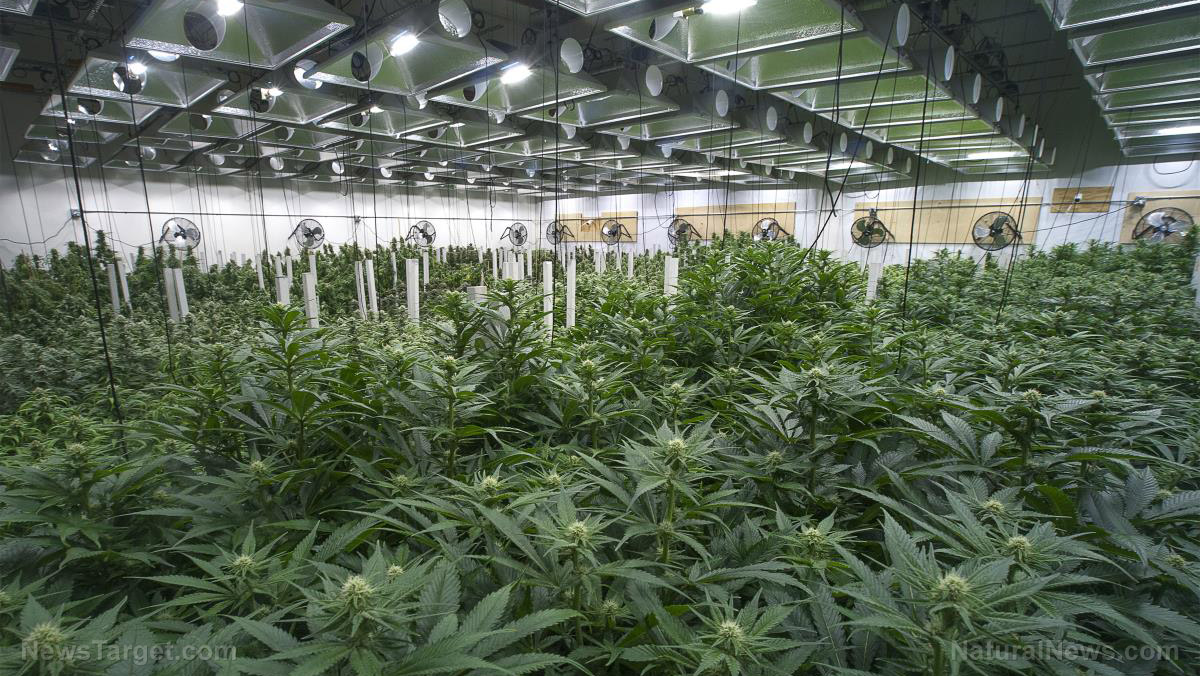Legalizing cannabis would dramatically improve public health while depriving criminal gangs of a major revenue source, says U.K. political leader
06/20/2017 / By Lance D Johnson

Former Deputy Prime Minister Nick Clegg thinks that cannabis should be legalized across the United Kingdom. He contends that legalization will bring in $1 billion in annual tax revenue while depriving criminal gangs of a major revenue source. He also believes a standard, regulated product would prevent purchases of high THC skunk strains that are dominating the black market.
Prohibition of cannabis sativa around the world has resulted in mass incarceration, widespread paranoia between people and law enforcement, loss of privacy and property, unnecessary violence and death. Yet more people smoke the plant than ever before. The latest data estimates that two million people in England and Wales smoked cannabis in 2016. Prohibition of this plant has only helped finance criminal drug gangs while wasting valuable court system time and jail cells. Why are non-violent people being locked up over this? In the U.K., anyone caught in possession of cannabis could face up to five years in prison. Dealers can face 14 years in prison. All this racketeering could be put to an end with legalization. Isn’t it time to accept this plant as part of who we are and end all the human separation?
Prohibition has also encouraged growers to breed the cannabidiol (CBD) out of the plant, while maximizing the tetrehydrocannabinol (THC) content (the psychoactive part of the plant). This has led users to become dependent on the high, while missing out the benefits of the plant.
Opponents to legalization fear that legalization sends the wrong message about drug use. Mr. Clegg argues that legalization would help remove super strength “skunk” TCH strains from the streets. Making cannabis legal would improve public health, he contends. If cannabis was sold over the counter, then criminal gangs would no longer be able to profit from illegal sales, either.
Mr. Clegg asserts, “The opponents of regulation should ask themselves this: what other public health problem do we contract out entirely to organized criminals? Instead of looking for real solutions, they expect us to believe that the criminal law will prevail, despite no evidence that this approach has ever worked anywhere in the world.”
Mr. Clegg takes it a step further and proposes that the U.K. sell the cannabis in standardized, plain packaging. This would do two things. First, it would lessen demand and make getting high less enticing. Second, it would ensure that users aren’t getting a “skunk” strain, bred just for the high. Britain’s illegal drug market is now saturated with “skunk” cannabis strains. Figures estimate that skunk varieties make up 80 percent of the black market. The demand for and dependence on this highly modified form would dissipate if standardized cannabis extracts were made available over the counter. The standard wouldn’t contain tobacco, additives or other drugs. Legalization and proper regulation could clean up the underground cannabis market, helping rid high THC strains and synthetic forms that are tied to mental health issues. (Related: Read more news on health freedom at HealthFreedom.news.)
“Regulation would allow us to control the product, capping maximum strength and requiring that all varieties contain CBD,” says Mr. Clegg. “Labeling requirements would end the lottery where cannabis users have no idea what they are buying.” King’s College London experts said in 2015 that the most potent forms are responsible for new cases of psychotic mental illness. Legalization would end the guesswork of what people are really smoking and could help put an end to the “reefer madness.”
People everywhere should be free to enjoy their time and connect with nature how they deem fit. Cannabis possesses many healing virtues, and if legalized, could dramatically improve public health. (Related: Learn more about the healing virtues of this sacred plant at CannabisCures.News.)
Sources include:
Tagged Under: Cannabis Legalization, CBD, personal liberty, THC


















